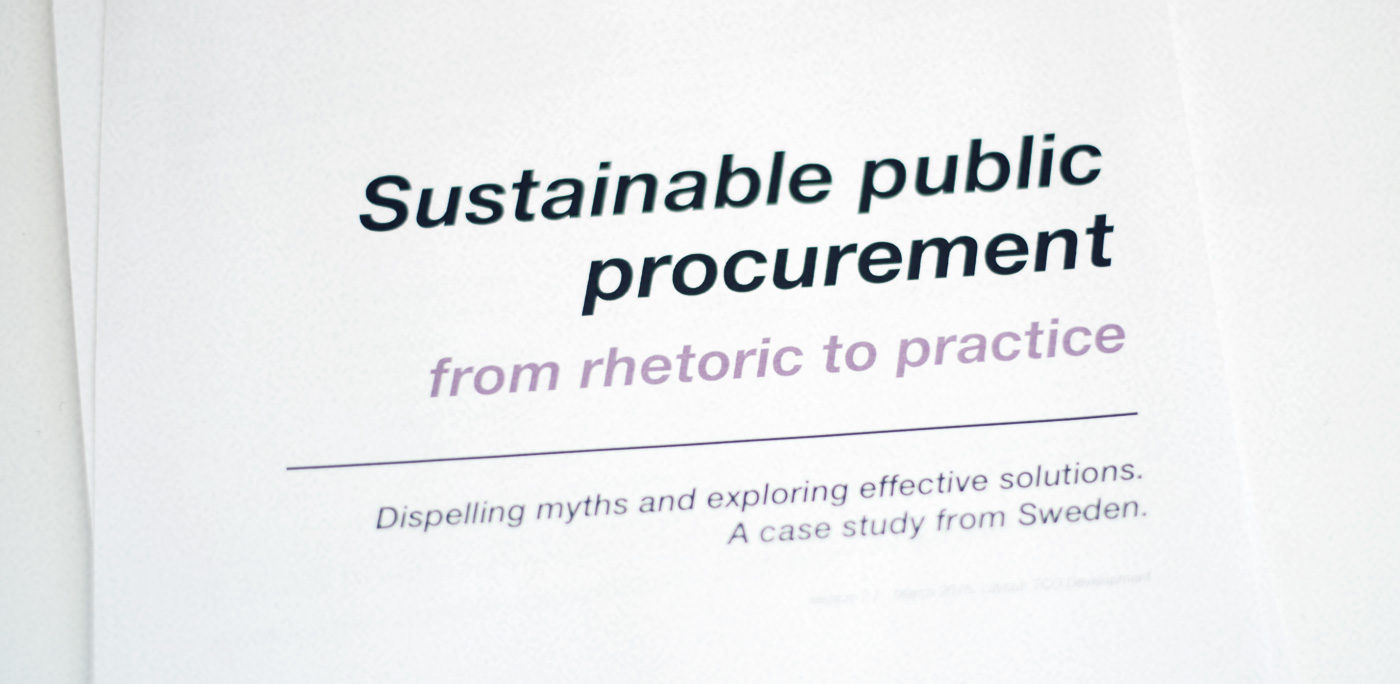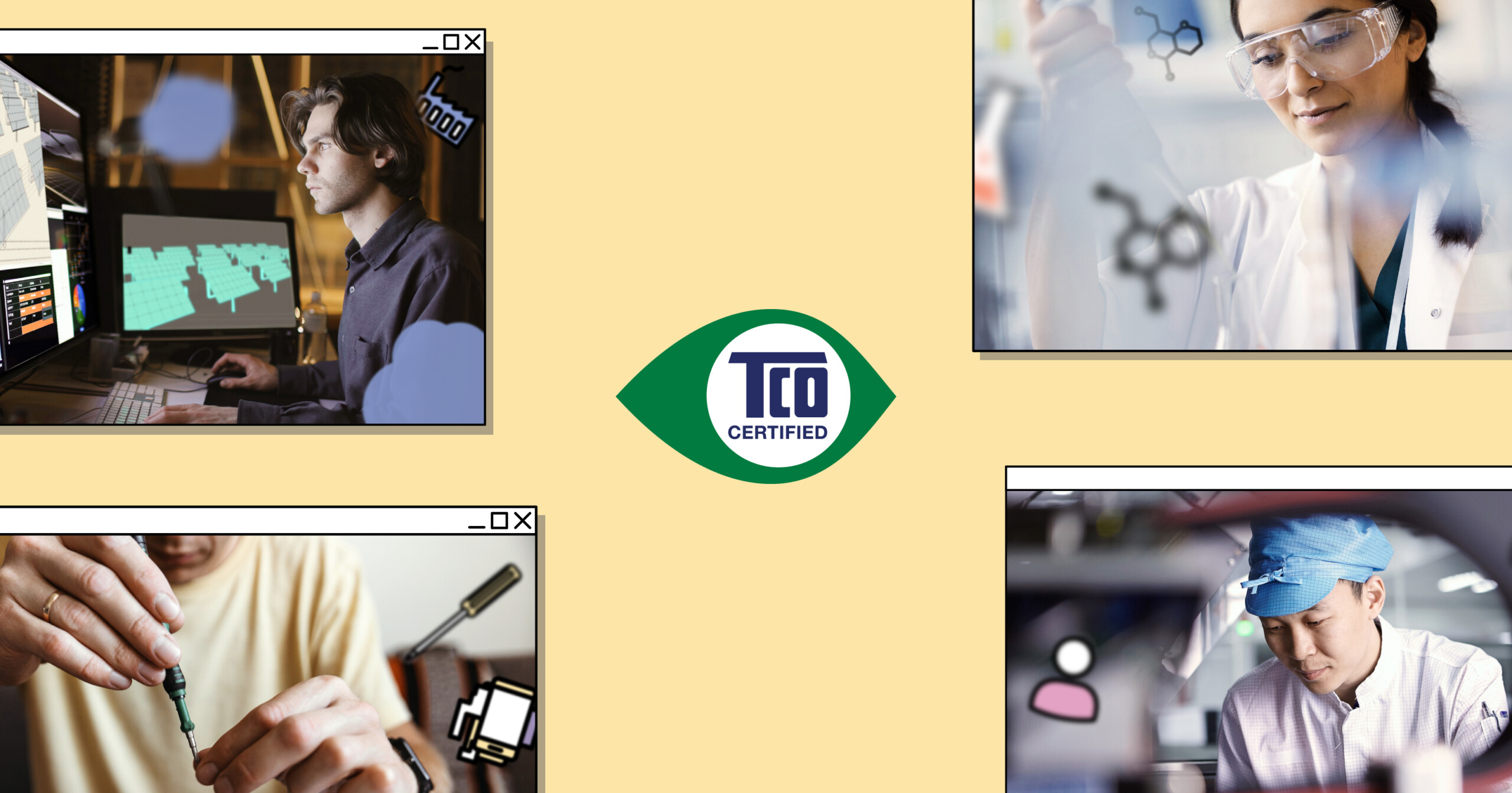This is an old press release and the information may be outdated
All too often, public funds are used to purchase goods and services that are selected without regard for environmental or social responsibility. In Europe, the new EU Public Purchasing Directive offers governments an opportunity to tighten legislation surrounding sustainable purchasing, and for buyers at the local level to take advantage of existing opportunities to make more sustainable product choices.
A new report from Sweden, Sustainable public procurement – from rhetoric to practice, takes a closer look at sustainable purchasing in the public sector and examines some common myths associated with including sustainability factors in the process. Deficiencies are identified in current legislation aimed at encouraging greater focus on sustainability factors in purchasing contracts. The study concludes that there is a need for tighter legislation, but also for buyers to take a greater responsibility at the grass roots level, by making more use of tools, such as third party certifications, available to them today.
The report is published by a group of sustainability organizations based in Sweden, including TCO Development, Fair Trade Sweden, MSC, the Association for Nature Conservation, KRAV, New Wave Group, 2050 Consulting and Ecolabelling Sweden. Together, these organizations have over 100 years experience in public purchasing, sustainability criteria and environmental strategy.
Ragnar Unge, CEO of Ecolabellling Sweden comments on the collaboration; “This report represents a unique cooperation between organizations with a long background in solutions for public purchasers. We hope this report will encourage both lawmakers and procurement professionals to become more engaged in sustainability issues when buying products and services.
The new EU Public Purchasing Directive is currently being implemented by all member states. Provisions in the Directive give greater room for purchasers to make use of third party certifications as part of sustainable purchasing practice. Third party programs can support purchasers by providing current, relevant criteria and built-in routines for assessing and verifying compliance of the products they buy, something which is often too complex and resource-intensive for purchasers to do themselves.
The authors urge public entities to take greater responsibility for ensuring that products purchased with public funds meet sustainability criteria throughout the life cycle. Using third party certifications in various product categories is an effective way to do this, and in turn, help reach broader national climate and sustainability goals.
Buyer demand for third party certification provides greater incentive for brands and manuufacturers to not only certify their products, but also improve the overall environmental and social aspects of their business.
Lead author
Dr Mikael Karlsson, Senior Researcher at KTH Royal Institute of Technology in Stockholm, Sweden, Senior Advisor at consultancy firm 2050, President at European Environmental Bureau, EEB
Contributing authors
Gabriella Mellstrand, marketing director TCO Development, former vice mayor and member of the city council of the town of Örebro, Anna Norberg, Head of press department, Nordic Ecolabelling, Rebecka Svensson, CSR Manager at New Wave Group, Henrik Sundberg, consultant at consultancy firm 2050.
Together toward sustainable IT
TCO Certified is the global sustainability certification for IT products, empowering both IT buyers and brands to make more responsible choices. Our comprehensive criteria are designed to drive social and environmental responsibility and are updated continuously to push sustainability where it matters most. Compliance with all criteria is always independently verified for every product. Our Roadmap for Sustainable IT is the long-term plan for addressing issues in four key areas: climate, substances, circularity and supply chain. By using TCO Certified, you join a global movement for sustainable IT.
Contact
Dennis Svärd, Global PR Manager
dennis.svard@tcodevelopment.com
Mobile: +46 (0) 704 804 094



